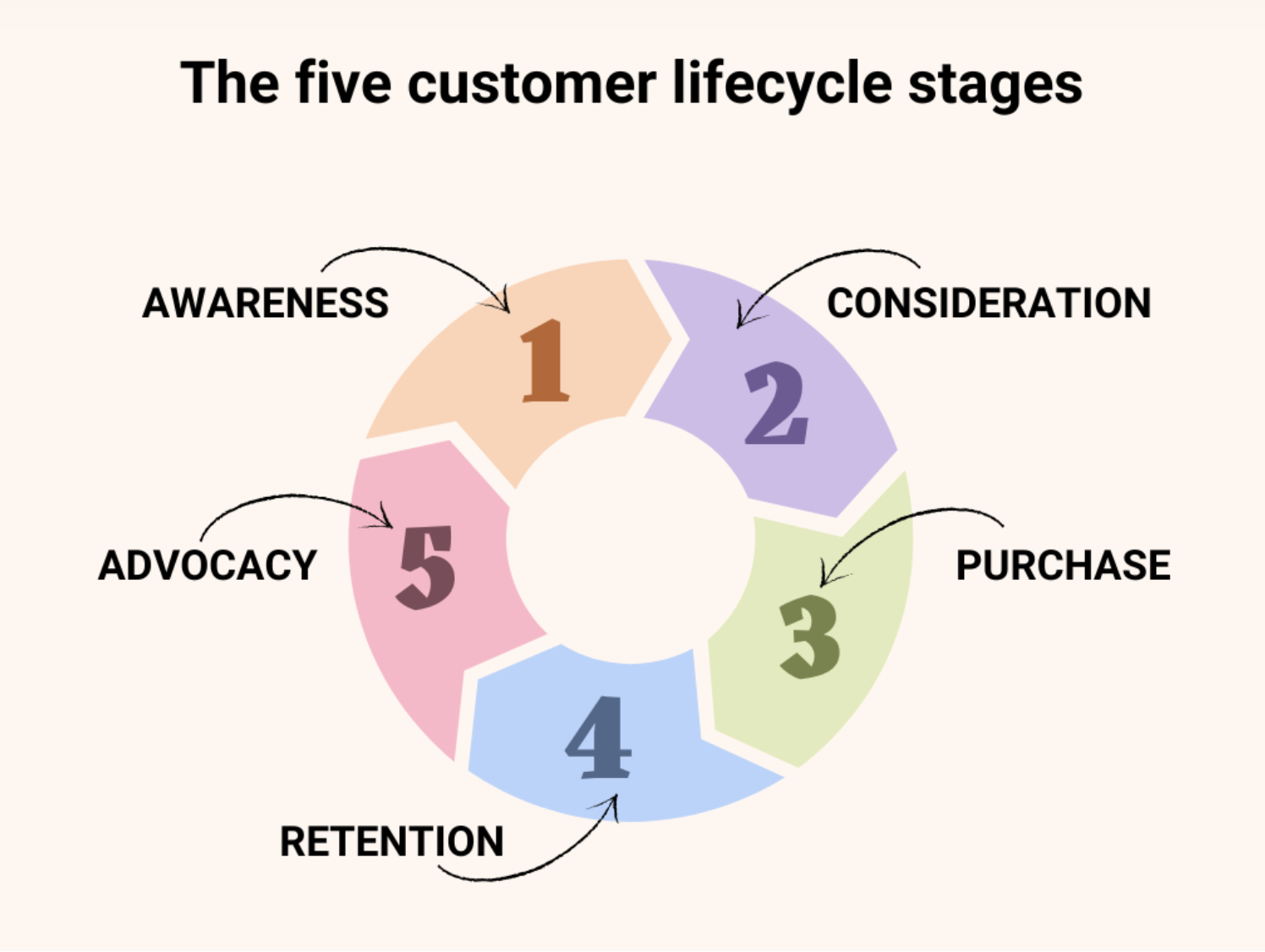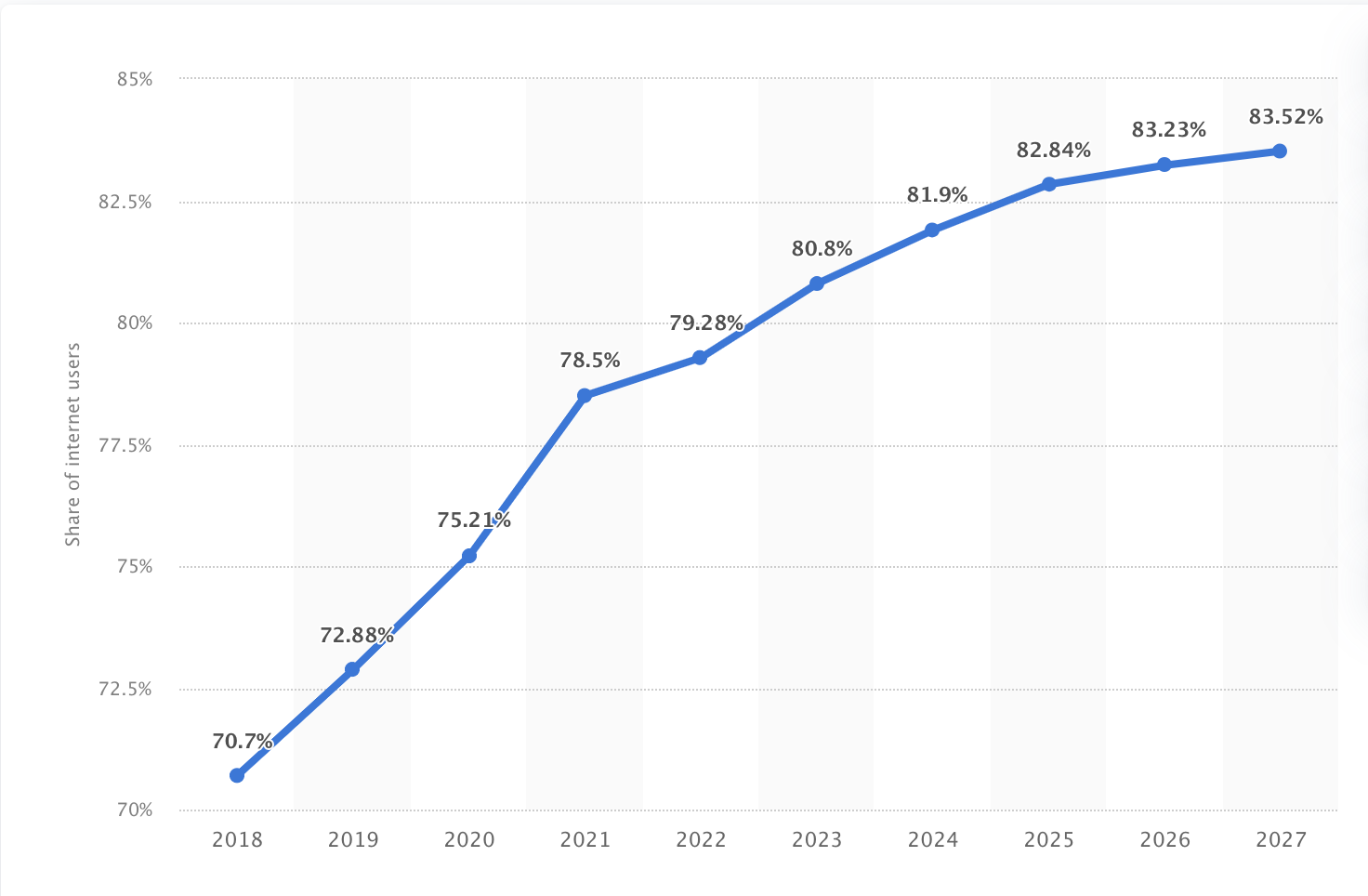How Technology Streamlines the Customer Lifecycle Management Process
Sept 29nd, 2023
Customer lifecycle management has evolved into a critical component of modern business strategy, especially in today’s digital landscape. As businesses navigate the complexities of customer interactions, technology has emerged as a key enabler, simplifying and enhancing the customer lifecycle management process. This guide explains what customer lifecycle management is and reveals how new digital technologies are revolutionizing customer relationship management from start to finish.
Key Takeaways
- Digital transformation technologies are crucial in fine-tuning every stage of the customer lifecycle management.
- A fusion of data analytics, AI, and specialized platforms ensures a holistic and data-driven approach to customer lifecycle management.
- Embracing these technologies can drive revenue growth, foster customer loyalty, and elevate brand reputation in today’s competitive marketplace.
😉BONUS: Check out our webinar on Contract Automation with Artificial Intelligence.
What Is Customer Lifecycle Management?

Image Source: https://www.optimonk.com/customer-lifecycle-management
Customer lifecycle management is a strategic framework for engaging with customers across their entire lifecycle. From the first point of contact, customer lifecycle management seeks to understand, manage, and optimize every touchpoint, ensuring a seamless and valuable experience for the customer. Many organizations break customer lifecycle management into five different phases:
-
- Awareness: Marketing campaigns, word-of-mouth, or other channels make potential customers become aware of the company and its offerings.
- Consideration: Prospects actively weigh the company’s offerings against competitors.
- Purchase: Prospects make a purchase, becoming customers.
- Retention: Post-purchase, the company nurtures ongoing relationships to keep the customer satisfied and loyal.
- Advocacy: Satisfied customers become brand advocates, referring new customers, leaving positive reviews, and promoting the brand organically.
Customer lifecycle management underscores the importance of a holistic view of the customer experience, recognizing that the value of a customer extends far beyond the initial transaction. Properly executed, customer lifecycle management can drive revenue growth, enhance brand reputation, and foster long-term customer relationships.
11 Digital Technologies Powering Enhanced Customer Lifecycle Management
Effective customer lifecycle management relies on data. The richer the data sets and the clearer the view into them, the better businesses can engage with customers at various customer lifecycle management stages. Many new digital technologies are driving data-driven customer lifecycle management practices. Here’s a rundown of 11 important technologies for enhanced customer lifecycle management.
1. Customer Relationship Management (CRM) Systems
Popular CRM tools like Salesforce, Microsoft Dynamics, and HubSpot serve as the backbone for many businesses’ customer lifecycle management processes. These platforms consolidate customer data and digital interactions. They track communications, purchases, and preferences, enabling companies to personalize engagements, forecast sales, and quickly identify issues or opportunities. As digital nerve centers, CRMs streamline sales processes and offer insights to optimize marketing strategies.
2. Marketing Automation Platforms
Marketing automation platforms redefine how businesses nurture leads and engage customers. With these tools, businesses can:
- Manage email campaigns
- Automate repetitive tasks like social media posts
- Segment customer databases
- Integrate with CRMs to provide a seamless flow of data
By delivering timely and relevant content to customers, these platforms significantly increase conversion rates.
3. Chatbots and Virtual Assistants
AI-driven chatbots offer 24/7 customer interactions. They handle inquiries, streamline support, and even guide users through purchase decisions. As they learn from accumulating interactions, they become more adept at providing tailored responses. They are essential in offering real-time support, reducing operational costs, and improving customer satisfaction.
4. Data Analytics and Visualization Tools
In the age of data-driven decisions, analytics and visualization tools have become a necessity for processing and interpreting large data sets. They transform raw data into intuitive visualizations, helping businesses identify trends, patterns, and anomalies, and thus refining their customer lifecycle management strategies. These insights can spotlight successful initiatives or areas needing improvement.
5. Ecommerce Platforms

Image Source: https://www.statista.com/statistics/273958/digital-buyer-penetration-in-the-united-states
With the penetration rate of ecommerce engagement among U.S. consumers now tracking above 80%, many popular ecommerce platforms have developed data-capturing features that facilitate customer lifecycle management. These platforms offer end-to-end solutions for businesses such as:
- Inventory management
- Profit optimization
- Payment processing
- Personalized recommendations for existing customers
Integrated analytics help businesses better understand customer behaviors, optimize the shopping experience, and forecast market trends.
6. AI and Machine Learning (ML) Tools
Far from just buzzwords, AI and ML offer tangible benefits for customer lifecycle management. By analyzing vast amounts of data, they can predict customer behaviors, automate customer interactions, and offer personalized content recommendations. Their applications range from chatbots to predictive sales analytics.
7. Cloud Computing
Cloud computing and storage platforms like Amazon Web Services, Google Cloud, and Microsoft Azure represent the forefront of cloud solutions. They offer scalable, secure, and cost-effective infrastructure. With the ability to quickly deploy applications, store vast amounts of data, and integrate with other services, they underpin many digital transformation initiatives.
8. Social Media Monitoring Tools
In today’s interconnected world, platforms like Hootsuite and Brandwatch are invaluable. They enable businesses to monitor brand mentions, gauge sentiment, and interact with audiences. By staying attuned to customer feedback and market conversations, companies can proactively address concerns and leverage positive publicity.
9. Customer Feedback and Survey Tools
Customer-centric businesses value feedback. With popular feedback and survey platforms, they can design detailed surveys, collate responses, and derive actionable insights. This feedback loop is essential in refining products, services, and overall customer experiences.
10. Integrated Communication Platforms
Effective customer lifecycle management requires seamless internal communication. Tools like Slack, Microsoft Teams, and Zoom ensure teams collaborate efficiently, even in remote environments. They support video conferencing, real-time messaging, and document sharing, ensuring alignment across departments.
11. Contract Management Software
Contracts are the foundation of business relationships. They define expectations, deliverables, terms, and conditions of ongoing agreements. From initial engagement and onboarding to fulfillment, renewal, and beyond, contract management intersects with every phase of the customer lifecycle.
Modern contract management software revolutionizes the way businesses approach and manage their contract lifecycles. By digitizing contracts, these platforms streamline the drafting, negotiation, execution, and monitoring processes. Contract management software helps ensure contracts remain compliant and up to date through features like:
- Automated reminders
- Customizable workflows
- Real-time amendments
- Centralized repositories for secure storage and collaboration
Additionally, advanced analytics provide businesses with insights into contract performance, potential risks, and areas for renegotiation. Thus, contract management software not only optimizes operations but also fortifies relationships throughout the customer journey.
Secure, Streamlined Contract Management with Contract Logix
Contract Logix’s comprehensive cloud-based contract management platform helps businesses minimize contract risks, ensure compliance, and stay on top of contract deadlines and milestones. With features like automation, customizable approved language libraries, AI-enabled repository, and risk and compliance assessment, Contract Logix is your one-stop shop for modern business contract management.
Request a demo of Contract Logix today.
Looking for more articles about Contract Management? Check out our previous article “The Why and How of Contract Analysis“.
Accelerate Your Digital Transformation With Contract Logix
Download our Data Extraction Product Brief to learn how you can automate the hard work using artificial intelligence


